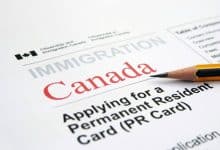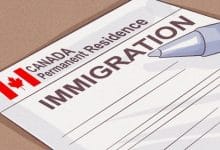Sibling Sponsorship in Canada – How To Apply 2024
How To Apply For A Family Class Sponsorship In Canada
Sibling Sponsorship in Canada is now open for application. The Canadian government values family, which is why it supports immigration schemes that allow sibling sponsorship in Canada.
With free universal health care, high-quality education, and a plethora of work options, Canada is a country rich in opportunities. It’s no surprise that foreign nationals and their families find Canada so alluring.
We explain how to apply for the Family Class Sponsorship so that you and your family can become permanent residents of Canada in this post. Now let’s look at the Family Class Sponsorship program and how it works.
Family Class Sponsorship In Canada
Permanent residents or citizens of Canada who are 18 years of age or older who wish to bring their family members to live and work in Canada are eligible for the Family Class Sponsorship. This is one of the most popular immigration streams in Canada since it makes bringing your spouse or sibling to the country so simple.
Cheapest Places To Live In Canada
Sibling Sponsorship in Canada
How Can I Sponsor A Sibling Under Family Class Sponsorship Program?
Now we’ll go over how you can use the Family Class Sponsorship program to sponsor a relative.
Step 1: Gain an understanding of how the Family Class Sponsorship Program works.
To begin, you must be at least 18 years old and a Canadian citizen or permanent resident to sponsor a relative. You can also register as a Canadian Indian under the Canadian Indian Act.
If you’re sponsoring a relative to come to Canada, you should know the following:
If you seek for sibling sponsorship in Canada, you must be able to financially support your family if you decide to settle in the country. To put it another way, you should provide food, shelter, and clothing, as well as the likelihood of social aid.
Step 2: Determine if you qualify to sponsor a relative.
There are some requirements for the individual who is sponsoring their relative, as well as some needs for the relative who is settling in Canada.
If you’re 18 years old or older, a Canadian citizen, or a member of the Canadian Indian Act, you can apply for family sponsorship. You can also become a permanent resident of Canada and live and work there.
While you’re outside of Canada, though, you can sponsor a family member. If you’re a Canadian citizen living overseas on a temporary basis, you should be aware of the following:
- living in Canada or planning to return so you can be there when your relative immigrates to Canada and
sponsoring your spouse or common law partner, or dependent child who should have no other dependent children. - You cannot sponsor a relative if:
- you’re convicted of a violent or sexual crime and you’re in prison;
- have not paid child support or in arrears with child support;
- have been declared bankrupt;
- received social assistance when you’re not disable;
- in arrears with immigration payments or loans and
- fail to meet the sponsorship conditions or any other offense that was not listed.
Keep in mind that various jurisdictions may have different requirements for sponsorship. Quebec, for example, may require you to sign an undertaking contract that binds your sponsorship.
Step 3: Check If Your Relative Is Eligible
Via certain conditions, your sibling, sister, aunt, or uncle can immigrate to Canada under the Family Class Sponsorship program. Naturally, there are times when relatives do not match the criteria; what options do you have then?
On the official Canadian government website, you can utilize the “come to Canada tool.” The tool assists you in locating different programs that may be of interest to you. Answer a few online questions about your application, save the questionnaire, and continue on to the next set of instructions.
Step 4: The Application Process
There are two options for your relatives to become permanent residents:
You can sponsor your relatives, or your relatives can apply for permanent residency in Canada to live and work.
Keep in mind that you must submit both your sibling sponsorship and permanent resident applications at the same time. Following that, your application will be processed, and you will be notified whether or not it has been approved.
Recommended: IRCC Processing Times For All Categories
Step 5: What happens after I apply?
All applications will be scrutinized to ensure that they are complete and that all payments have been paid. You will receive an acknowledgement letter as soon as your application is processed, informing you of the next steps in the process. You, the sponsor, and the relative you’re supporting will all have their eligibility evaluated.
If your application is turned down, keep in mind that there are other options. You’ll also learn why your application was turned down and how you can appeal the decision.
How will the relatives be informed?
When your relative’s application is being processed, they will receive a letter with their application number. Following that, their application will be linked to their online account, allowing for better communication and updates in the future.
Application Status For Sibling Sponsorship
Both the sponsor and the sponsored relative can monitor the status of their application. Sponsors are encouraged to verify the status of their application using an online tool developed to help applicants follow their application’s progress.
By requesting access, the sponsor can also check the status of their relative’s application. Alternatively, if you want to oversee your relative’s application, such as filling out documents and conveying vital information, you might act as a “representative.” Even so, the relative would have to give you permission.
Know how ArriveCAN works
Knowing how ArriveCAN works is a crucial part of your arrival preparation. ArriveCAN is a platform where immigrants can share travel information both before and after they arrive in Canada. Applicants must use the most recent version of ArriveCAN and ensure that all information has been successfully uploaded earlier.
You must produce your Confirmation of Permanent Residence (COPR) once you arrive in Canada. Furthermore, you must present your permanent residence visa to an Immigration, Refugees and Citizenship Canada (IRCC) official at the port of entry (POE).
If nothing goes wrong, you’ll be well on your road to becoming a permanent resident of Canada. Your permanent resident card will be shipped to the address you indicated on your COPR, which is in Canada. This card will serve as evidence of your status as a permanent resident of Canada. This is why, when applying for sponsorship, it’s critical to indicate the exact address on your COPR.
Apply To Study In Tuition Free Universities In Canada
When Can I Sponsor A Sibling To Immigrate To Canada?
For the time being, we’ll focus on two instances in which you can sponsor a relative.
Family sponsorship of an orphaned brother, sister, nephew, niece or grandchild: Both parents must be deceased, and the family member must be connected to you by blood or adoption. The relative must be under the age of eighteen, single, and unmarried.
Other family members: A blood relative or an adoptive family member of any age can be sponsored. This only applies if you, the sponsor, do not have any other living relatives to sponsor, or if you do not have any relatives who are Canadian citizens or permanent residents to sponsor instead.
Sibling Sponsorship in Canada – A Summary Of Who You Can Sponsor
Eligibility To Sponsor An Aunt:
The sponsor could be a Canadian permanent resident with no children, parents, or dependents who wants to sponsor their aunt, who is married and has a child. Because the sponsor is a permanent resident of Canada who is sponsoring any other relative, such as their aunt, they still meet the qualifications.
Eligibility To Sponsor A Cousin:
The sponsor is an only child who has lost both his parents and grandparents. In this scenario, he is a permanent resident of Canada who seeks to sponsor his cousin. The sponsor is a single man with no Canadian relatives. Because the sponsored cousin is single, the sponsor is eligible for sponsorship because he has no close living relative or spouse in Canada. Alternatively, he may not have a Canadian relative who is a permanent resident or a registered Indian of Canada.
Eligibility For Sibling Sponsorship In Canada:
While both parents have died, the sponsor has a sibling via blood or adoption. The relative must be under the age of eighteen, single, and unmarried. However, you cannot sponsor your brother, sister, nephew, niece, or grandchild if their parents are still alive, have abandoned them, or are missing or in prison.
Don’t be discouraged if your family sponsorship application is turned down. You can learn about alternative programs that cater to diverse circumstances and demands with the correct advice. Alternatively, you can learn more about how to immigrate to Canada via Canada Provincial Nomination Program.
Process For Applying For Family Class Sponsorship
For the time being, let’s have a look at the three-step process for applying for Family Class Sponsorship.
1. Obtain the Family Class Sponsorship application package.
Your instruction booklet, appropriate paperwork, and a document checklist will all be included in the application package. Before applying, the sponsor must ensure that they meet the qualifications and agree to the sponsorship’s terms and conditions.
When submitting your application, make sure you include the following information:
- attach proof of income;
- prove that your relative can provide for themselves;
- state in writing that you’re able to support your relatives for a certain amount of time;
- provide all supporting documents according to the checklist, and
- state the amount of relatives you wish to sponsor and any other potential information that could influence the status of your application.
Because everything will be confirmed afterwards, every information provided must be accurate. If you are dishonest or give inaccurate information, your application will be rejected. In turn, the sponsored relative must be accurate about the facts they supply and should be willing to undergo criminal background investigations.
2. Pay your application fees
Fees for permanent residence have recently increased. But don’t worry, we’ll break down what you’ll be paying for in a nutshell:
- Processing fees and the relatives you’re sponsoring;
- Right of Permanent Residence Fee (RPRF) which is currently $515 and
- Biometrics fees (fingerprints and photo)
It should be noted that all candidates must pay their fees via the internet. Visa, MasterCard, American Express, JCB, and UnionPay credit and prepaid cards will be accepted by the Canadian government. You can also use your Debit MasterCard or Visa Debit cards to make a payment.
3. Submit Your Application
Applicants must submit their applications together with supporting papers by mail. The directions for this process will be found in your application package’s instruction guide. Even if the processing timeframes for permanent residency applications have been improved, the process is still subject to differences between countries.
FAQs – How To Sponsor Your Siblings To Immigrate To Canada
1. Is it possible for me to bring my siblings to Canada permanently?
There are numerous immigration routes that allow you to bring your siblings to Canada with you. They can apply for an open work permit or through the Express Entry system, which provides programs to suit a variety of needs. You can also apply as a sponsor for the Family Class Sponsorship program, which allows you to sponsor your siblings or other relatives.
2. How can I sponsor my brother immigrate to Canada?
You can apply for sibling sponsorship under the Family Class program if you’re a permanent resident of Canada or a Canadian citizen, or if you’re registered under the Canadian Indian Act. Both the sponsor and the relative being sponsored must meet a series of standards. Your application and supporting documentation will be assessed if you’ve been determined to be eligible for the Family Class Sponsorship, and a decision on whether or not to issue a visa will be made.
3. Can I sponsor my niece’s immigration to Canada?
You can sponsor your orphaned grandchild, brother, sister, niece, or nephew. These relations must, however, be unmarried and under the age of 18. However, based on your needs and sponsorship conditions, you may be able to sponsor a relative who is not in the indicated age bracket.
Apply To Recent Job Openings In Canada
In order not to miss out on prompt updates from careerinfos.com, enter your email address below and hit the subscribe button beneath.
A confirmation link will be sent to your inbox or check your spam mails if its not in your inbox. Make sure you click the link to confirm your subscription in order not to miss any updates from this blog. All comments (related to the post above) should be dropped via the comment section below.








